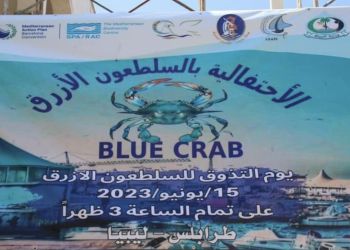Project
The Impact of Invasive Species on Marine Biodiversity along the Libyan Coast
Start Date Time :January 14, 2016
This project aims to study and assess the environmental, economic, and social impacts of invasive species on marine ecosystems along the Libyan coast, particularly in the southern part of the Mediterranean Sea.
Key Challenges:
- Lack of financial and human resources.
- Difficulty accessing certain areas.
- Lack of awareness about the importance of marine environmental protection.
Achievements and Outputs
Expansion of Study Scope
- Targeted Species: Focus on invasive species with the most significant impact on the Libyan marine ecosystem, such as specific fish, crustaceans, and algae.
- Geographical Coverage: Extend the study to cover a larger area of the Libyan coastline, including understudied regions.
- Temporal Depth: Examine changes in the distribution and abundance of invasive species over time to identify future trends.
In-depth Analysis of Environmental Impacts
- Impact on Biodiversity: Assess the effects of invasive species on local biodiversity, including resource competition, predation, and disease transmission.
- Impact on Food Webs: Analyze changes in marine food webs caused by invasive species.
- Impact on Ecosystem Services: Evaluate how invasive species affect ecosystem services provided by the marine environment, such as fisheries and tourism.
Study of Parasites and Diseases
- Identification of Parasitic Species: Catalog parasitic species associated with invasive species and their potential transmission to native species.
- Disease Impact: Investigate the effects of diseases carried by invasive species on the health of marine organisms.
- Prevention and Control: Propose measures to prevent the spread of diseases and mitigate their impacts.
Economic and Social Impacts
- Impact on Fishing: Evaluate the effects of invasive species on the fishing industry, including changes in fishery productivity and community composition.
International Collaboration
- Knowledge Exchange: Collaborate with international researchers on invasive species to exchange expertise and knowledge.
- Global Comparisons: Compare study results with other regions facing similar invasive species challenges.
Main Objectives:
- Preserve marine biodiversity in Farwa Lagoon.
- Improve traditional fishing practices to ensure the sustainability of fish stocks.
- Raise environmental awareness among fishermen and the local community about the importance of environmental conservation.
Master’s Projects:
- Case Study on Specific Invasive Species: Focus on one invasive species and analyze its impacts in detail.
- Development of an Environmental Impact Assessment Index: Create an index to measure the environmental impact of invasive species and apply it to species along the Libyan coast.
- Evaluation of Current Mitigation Measures: Assess the effectiveness of current measures in controlling the spread of invasive species.
Scientific Publications:
- Publishing Research Results in Peer-Reviewed Journals: Disseminate findings in high-impact scientific journals to highlight the issue and raise awareness.
- Participation in Scientific Conferences: Present research papers at relevant scientific conferences.
Partners:
- National Authority for Scientific Research: Provided financial support.
- Ministry of Environment: Offered essential support for the project’s success and contributed expertise and data on these species.
- Regional Activity Centre for Specially Protected Areas (RAC/SPA): As a leading regional body for marine environment protection, RAC/SPA provided significant technical and awareness support.
